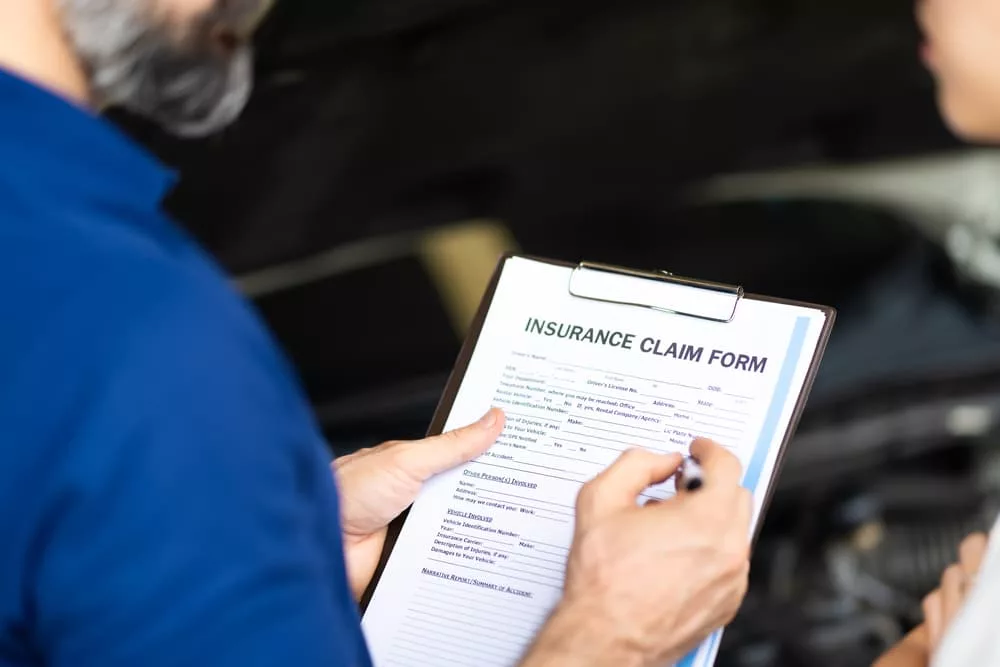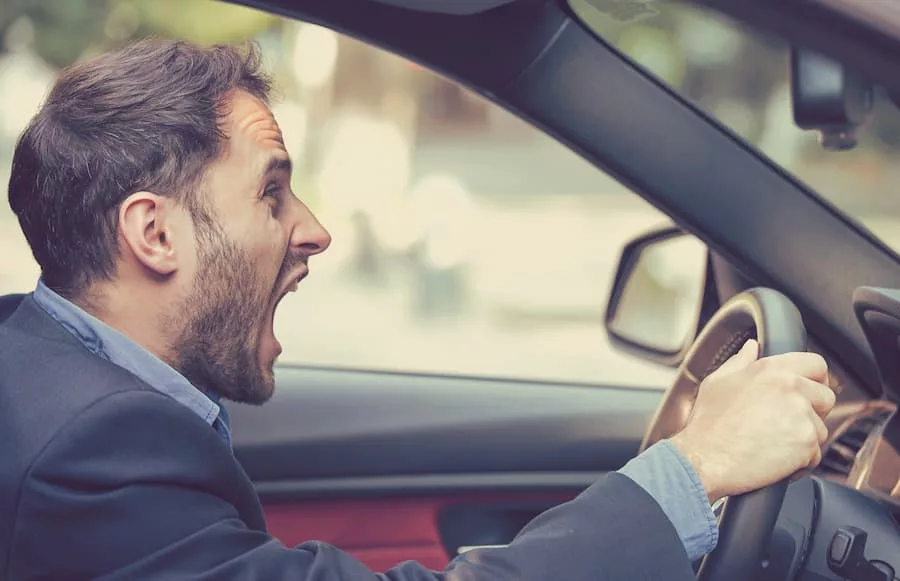What Is Considered Road Rage?
Did an angry, irate, or aggressive driver injure you in an accident? If so, you may be a victim of road rage. Road rage accidents occur far too often in the United States and in Florida, too. This page shares essential information about road rage accidents that injured victims need to know.
For example, did you know that you can hold the road rage driver financially accountable for your losses, such as lost wages and medical expenses?
A Miami car accident lawyer can explain your legal rights and options, so you should consult an experienced attorney as soon as possible.
What Is Road Rage?
Road rage occurs when a driver engages in aggressive driving behaviors due to anger or frustration. That makes road rage different from and more dangerous than simply negligent driving—the driver’s emotions fuel these actions. Road rage drivers are often angry, impulsive, and volatile. Furthermore, many drivers who exhibit road rage intend to harm others with their actions. That makes them especially dangerous.
While you may know road rage clearly when you’re on the receiving end, it can be difficult to prove what was going on in the driver’s mind when the incident occurred. However, an experienced personal injury attorney can help you establish clear and convincing proof of the driver’s egregious conduct and gross negligence.
What Does Road Rage Look Like?
Road rage can look like a range of dangerous, aggressive driving behaviors, including:
- Tailgating
- Honking excessively
- Flashing headlights
- Sudden lane changes
- Cutting off other drivers
- Yelling at other drivers
- Aggressive, intimidating, or obscene gestures
- Excessive speeding
- Disregarding traffic lights or signs
- Bumping another vehicle on purpose
- Confronting another driver or passenger outside of the vehicle
- Attacking another person outside of the vehicle
Why Does Road Rage Occur?
Sociologists and psychologists are the ones who could answer why road rage occurs. According to the National Highway Traffic Safety Administration (NHTSA), these experts have pointed to the fragmentation of society, the disintegration of shared values, the breakdown of community, and the sense of power and anonymity provided by motor vehicles.
Furthermore, the counseling psychologist Jeffrey Deffenbacher, Ph.D., found that people who self-identified as high-anger drivers exhibited:
- Hostile, aggressive thinking toward others
- Greater risk-taking on the road, including speeding, rapid lane switching, tailgating, and red-light running
- Rapid escalation of anger and aggressiveness
- Anxiety, impulsiveness, and anger exhibited throughout the day (not only while driving)
- More car accidents (twice as many in driving simulations compared to low-anger drivers)
- More traffic citations for speeding
Based on their own experiences, law enforcement officials attributed road rage or aggressive driving to:
- Traffic delays
- Running late
- Anonymity
- Disregard for the law
- Disregard for others
- Habitual behavior
How Big a Problem Is Road Rage?
According to a study by the AAA Foundation for Traffic Safety, road rage is a serious and pervasive problem. Seventy-eight percent of drivers polled in the study reported experiencing significant anger, aggression, or road rage while driving at least once in the past year.
The study also reported drivers admitting to these alarming behaviors:
- 51 percent reported purposefully tailgating
- 47 percent admitted to yelling at another driver
- 45 percent honked to show annoyance or anger
- 33 percent made angry gestures at another driver
- 24 percent tried to block another vehicle from changing lanes
- 12 percent cut off another vehicle on purpose
- 4 percent exited their vehicle to confront another driver
- 3 percent bumped or rammed another vehicle on purpose
Such behaviors could spiral into dangerous actions that endanger the lives of others. Indeed, nine out of ten study participants believe aggressive drivers pose a serious threat to their personal safety, for good reason. When the AAA Foundation analyzed data from the federal Fatality Analysis Reporting System, it found 55.7 percent of fatal crashes involved at least one driver who performed at least one potentially aggressive action.
The concept of road rage emerged in the 1990s as reports of dangerous, aggressive driving incidents gave the perception of an increasing problem. According to a review by the NHTSA, persistent news reports about shocking stories captured the public’s attention and established the narrative of rampant road rage. In actuality, the review attributed the perceived increase in road rage to the rapid growth in the population of drivers.
Between 1991 and 2000, the U.S. population increased by 22 million people (9 percent), with an even more pronounced growth in U.S. drivers (21 million during that same period, or a 13 percent increase). That put 30 million more vehicles on the road, with 600 billion additional miles traveled annually. With this astounding growth in drivers, vehicles, and miles traveled, it is no wonder that road rage incidents increased proportionally.
Who Is Most Likely To Commit Road Rage?
According to the AAA Foundation for Traffic Safety, males and young drivers ages 19 to 39 are most likely to engage in aggressive driving behaviors. For example, male drivers are three times more likely to commit two frightening road rage actions: getting out of their vehicle to confront another driver and ramming another vehicle on purpose. Drivers ages 25 to 39 were the most likely to report tailgating, yelling, honking, gesturing, cutting off, and confronting. Drivers ages 19 to 24 were most likely to report blocking another vehicle from changing lanes and ramming another vehicle.
Furthermore, drivers who committed other unsafe behaviors while driving, such as speeding and disobeying traffic lights, were more likely to drive aggressively. For example, drivers who admitted to speeding on a freeway in the last month were four times more likely to cut off another vehicle on purpose.
Drivers who reported receiving at least one traffic citation in the past two years were more likely to report tailgating and yelling at other drivers.
What Are the Legal Consequences of Road Rage?
Depending on the specific actions of the road rage driver, they could face legal consequences. Under Florida law, prosecutors could charge a road rage driver with one of the following criminal statutes:
Careless driving. Failure to drive in a careful, prudent manner considering the width, grade, curves, corners, traffic, and other attendant circumstances, so as not to endanger persons or property
Aggressive careless driving. Committing two or more of the following simultaneously or in succession:
- Exceeding the posted speed limit
- Improperly or unsafely changing lanes
- Following too closely behind another vehicle
- Failing to yield the right-of-way
- Passing improperly
- Violating traffic signal devices and controls
Reckless driving. Driving with willful or wanton disregard for the safety of property or people or fleeing a law enforcement officer
While careless driving is a non-criminal moving violation punishable by a fine of up to $500, drivers guilty of reckless driving could face criminal penalties depending on their past convictions:
- First conviction. Second-degree misdemeanor, punishable by imprisonment for up to 90 days, a fine between $25 and $500, or both
- Second or subsequent conviction. Second-degree misdemeanor, punishable by imprisonment for up to six months, a fine between $50 and $1,000, or both
Reckless drivers who commit the following aggravating factors face steeper penalties:
- Damage to property or another person. First-degree misdemeanor, punishable by imprisonment for up to one year and a fine of up to $1,000
- Serious bodily injury (an injury that creates a substantial risk of death, disfigurement, or loss or impairment of bodily member or organ) to another person. Third-degree felony, punishable by imprisonment for up to five years and a fine up to $5,000
- Use of alcohol, drugs, or other controlled substance. In addition to other penalties, completion of a Driving Under the Influence (DUI) program and evaluation and substance abuse treatment, if warranted
Drivers convicted of careless, aggressive careless, or reckless driving may also face a required driver improvement course, driving record points, heightened insurance rates, and driver’s license suspension.
How to Hold a Road Rage Driver Accountable
Whether or not a road rage driver will face criminal charges, you can hold them accountable for hurting you by filing an insurance claim or personal injury lawsuit against the driver. A criminal case has no bearing on your right to recover compensation for accident-related losses.
Many accident victims can recover compensation through an insurance claim filed through their own personal injury protection coverage or a third-party claim with the at-fault driver’s insurance. Unfortunately, many insurance companies try to short-change victims with lowball payouts that are woefully insufficient to meet their medical and financial needs.
A car accident lawyer can help you negotiate with the insurance company for a more generous settlement. If they refuse to settle on fair terms, your lawyer can file a lawsuit against the road rage driver and fight for your rights at trial.
Can Victims of Road Rage Recover Compensation?
You could pursue compensation from the road rage driver if you suffered physical, financial, mental, or emotional pain from a road rage accident.
A car accident lawyer can recover damages, the legal term for compensation, for:
- Current and future medical expenses to treat your injuries, including doctor and hospital bills, ambulance costs, surgery, medications, medical equipment, and rehabilitation
- Lost wages and benefits if you must miss work during your recovery
- Loss of future earnings if your injuries result in a long-term disability that prevents you from returning to your job
- Pain and suffering
- Mental anguish
- Emotional distress
- Loss of quality of life
- Loss of companionship
- Loss of consortium
The amount of compensation you can recover will depend on the severity of your injuries, the egregiousness of the road rage driver’s conduct, the quality of your legal representation, and the legal method you pursue. For example, suppose you file a claim through your own personal injury protection insurance. In that case, you can only recover some of your economic losses, such as medical expenses and lost wages.
On the other hand, if you pursue a personal injury lawsuit against the at-fault driver, you may recover both economic and non-economic losses, such as pain and suffering. Furthermore, if your lawsuit goes to trial, the court could award punitive damages, which punish the defendant and deter such conduct.
Under Florida law, the victim must present clear and convincing evidence that the defendant’s actions showed:
- Intentional misconduct. The defendant had actual knowledge of the wrongfulness of their conduct and the high probability of inflicting injury or damage but acted anyway.
- Gross negligence. The defendant’s conduct was so reckless or wanting in care that it constituted conscious disregard or indifference to others’ lives, safety, or rights.
Road rage drivers’ behaviors could meet the legal standard for punitive damages, depending on the circumstances.
What To Do After a Road Rage Accident
If a driver exhibiting road rage collided with your vehicle:
- Call the police. Report the incident to the police immediately. Provide the officer with as much information as possible about what happened from your perspective. The police can arrest a road rage driver for breaking the law.
- Rest and recuperate. After seeing a doctor about your injuries, prioritize your recovery. Follow the doctor’s instructions and keep notes about your pain, treatment, and progress.
- Retain records. Retain records related to the accident, including medical records, bills, statements, and insurance correspondence. You will need these records when filing a claim.
- Consult an attorney. Contact a personal injury attorney with experience handling road rage incidents. They can help you navigate the legal process and protect your rights and interests.
If a Road Rage Driver Hurt You, Contact a Personal Injury Lawyer Today

If a road raging driver hurt you, you have options to hold them accountable. Contact a Miami personal injury lawyer today to learn more about how they can help you pursue a legal claim or lawsuit against the at-fault driver. You should not have to suffer for their dangerous, egregious conduct.
Related articles
Related articles Related articles Related articles Related articles Related articles Related articles Related articles Related articles Related articles Related articles
Car Accident
18 Jan 2024
Who Is Liable if a Road Hazard Causes a Car Accident?

Car Accident
16 Jan 2024
How to File a Car Accident Claim as a Passenger





